The common food mistakes that could poison you
Stop doing these things in the kitchen
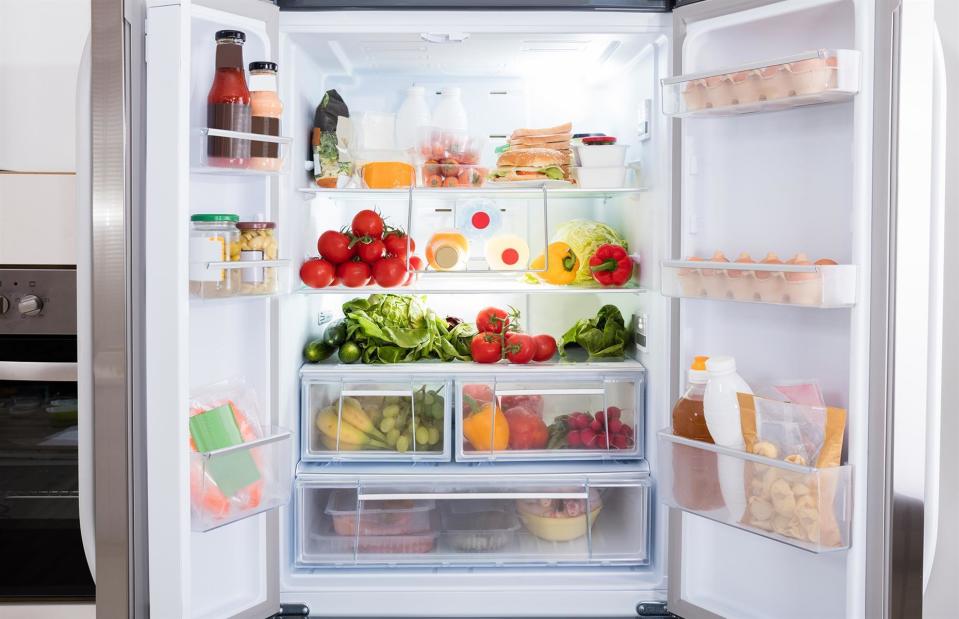
Andrey_Popov/Shutterstock
Food poisoning isn’t pretty, and these 21 mistakes you might be making in the kitchen are quite likely to make you ill. Follow our simple food hygiene advice and you’ll have a much safer kitchen for all. The following tips are backed up by information and advice from the British Food Standards Agency and NHS, and the United States Department of Agriculture.
Buying frozen goods at the beginning of your shop
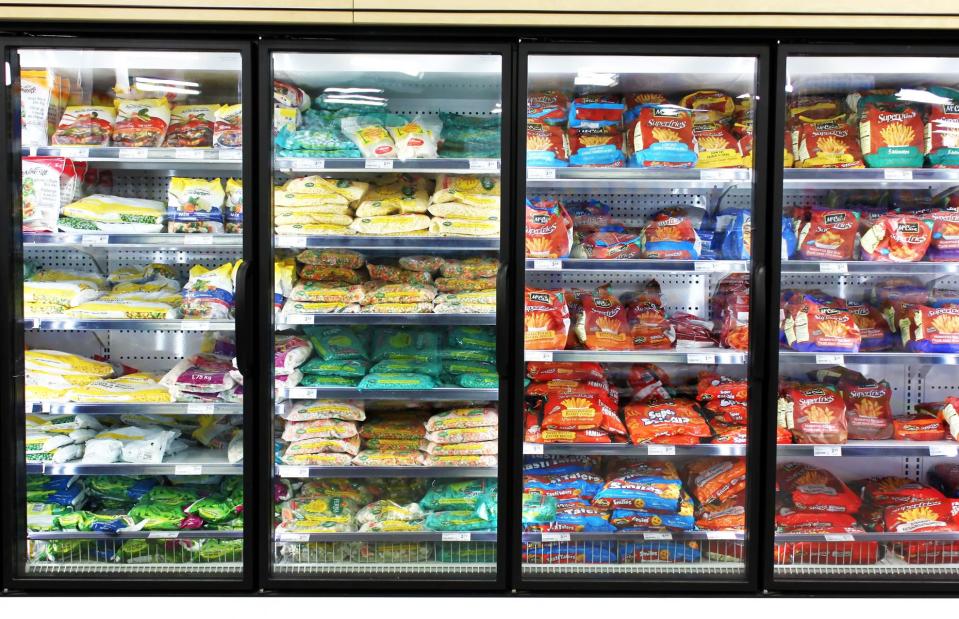
Niloo/Shutterstock.com
There’s a reason the freezer aisle is at the end of most supermarket layouts. You should always purchase frozen products at the end of your shop so the food doesn’t come up to temperature while you’re perusing the other aisles.
Buying food in broken packages
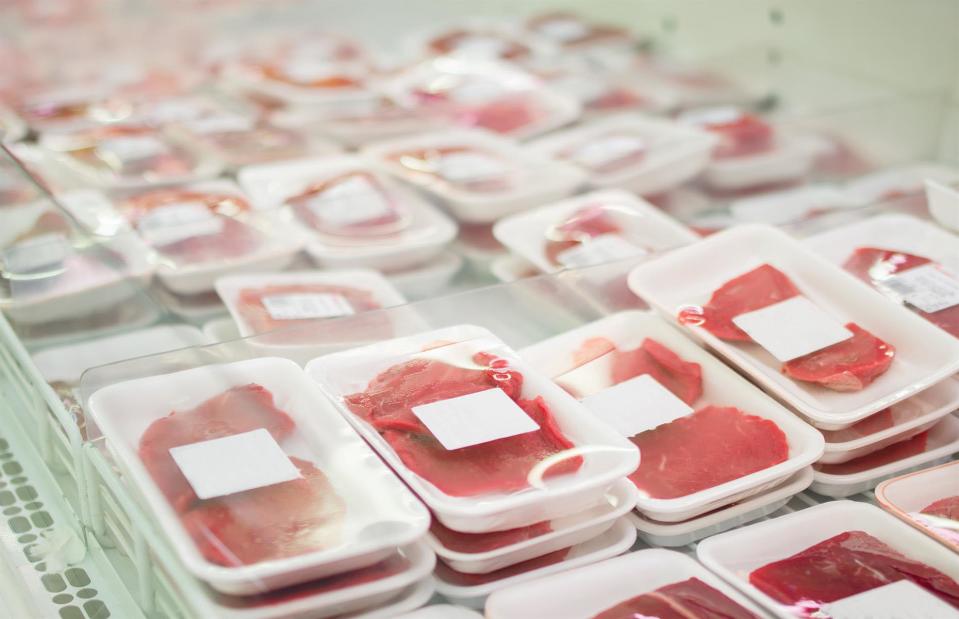
Andrey Burstein/Shutterstock
Don’t buy food where the packaging or seal is broken. Food could have become contaminated during processing or transportation, and therefore has a higher risk of food poisoning.
Chucking raw meat and other produce into your shopping trolley together
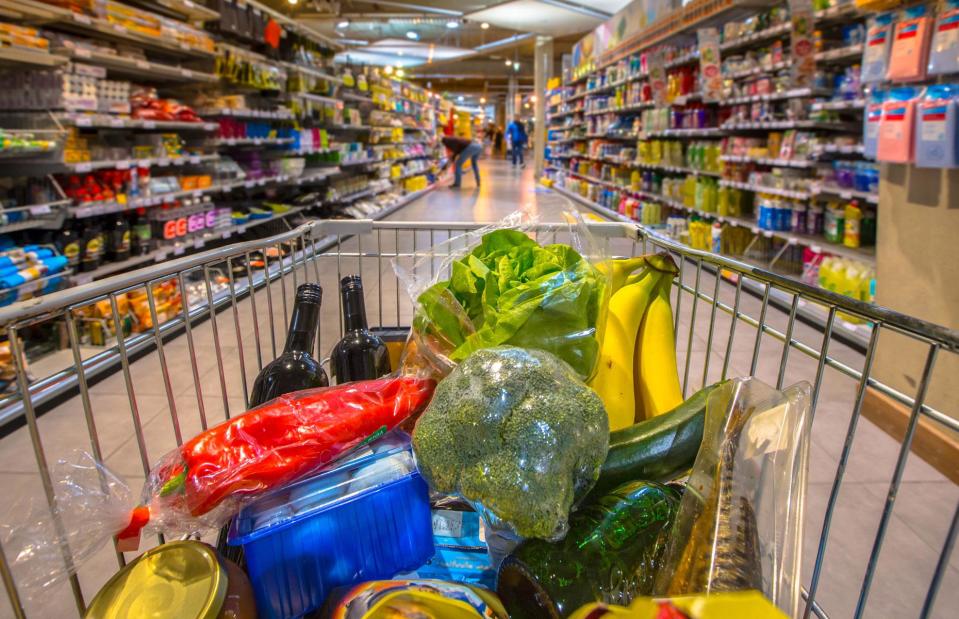
Rudmer Zwerver/Shutterstock
Good food hygiene starts before you even get in the kitchen. Always separate raw meat from any other produce in your trolley to avoid cross-contamination.
Bad hand-washing technique
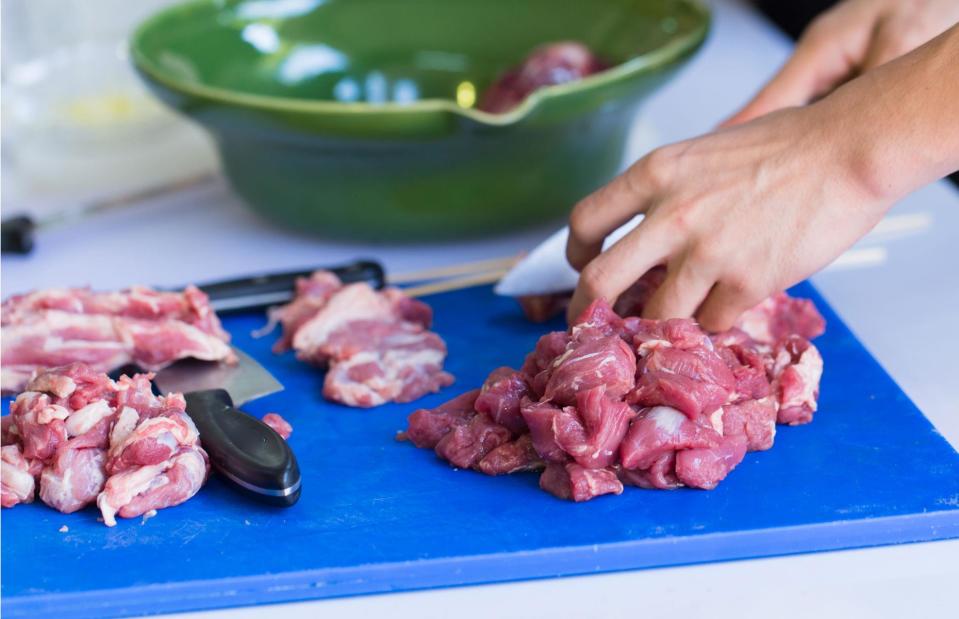
Quality Stock Arts/Shutterstock
You should have a separate chopping board for raw meat so food doesn’t cross-contaminate. Raw or undercooked meat is one of the main causes of food poisoning and having different chopping boards and knives for vegetables and meat will reduce the risk. At the very least, be sure to give your cutting board and knives an extremely good clean after they touch raw meat.
Reheating rice
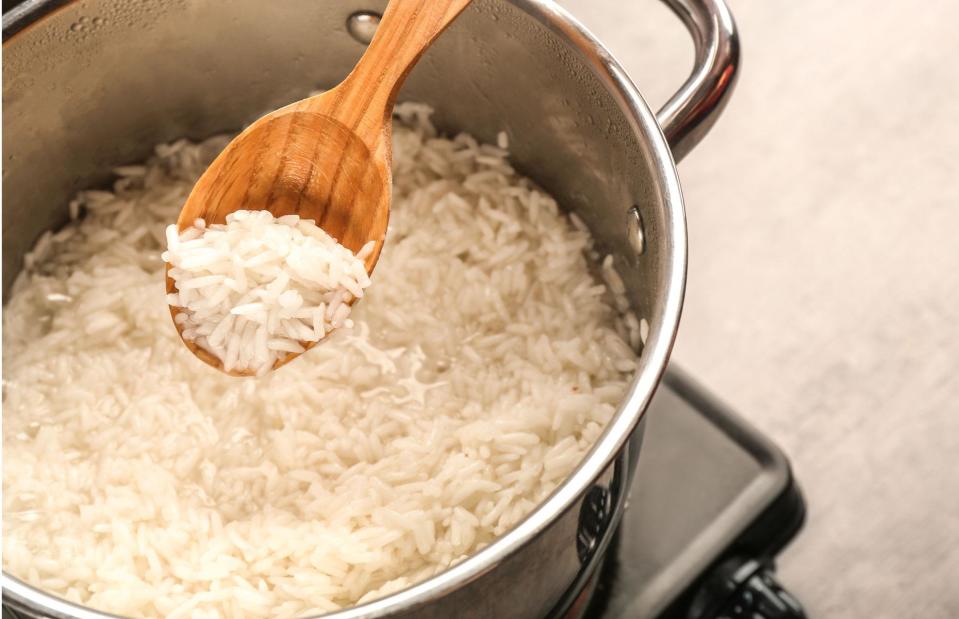
Africa Studio/Shutterstock
Uncooked rice can contain spores of bacillus cereus bacterium. The spores can survive when rice is cooked and then left at room temperature – they grow into bacteria that cause vomiting or diarrhoea. Always cool rice within one hour, keep leftover rice for no longer than one day and make sure any reheated rice is piping hot all the way through before consuming. Also, don't reheat rice more than once.
Not washing berries
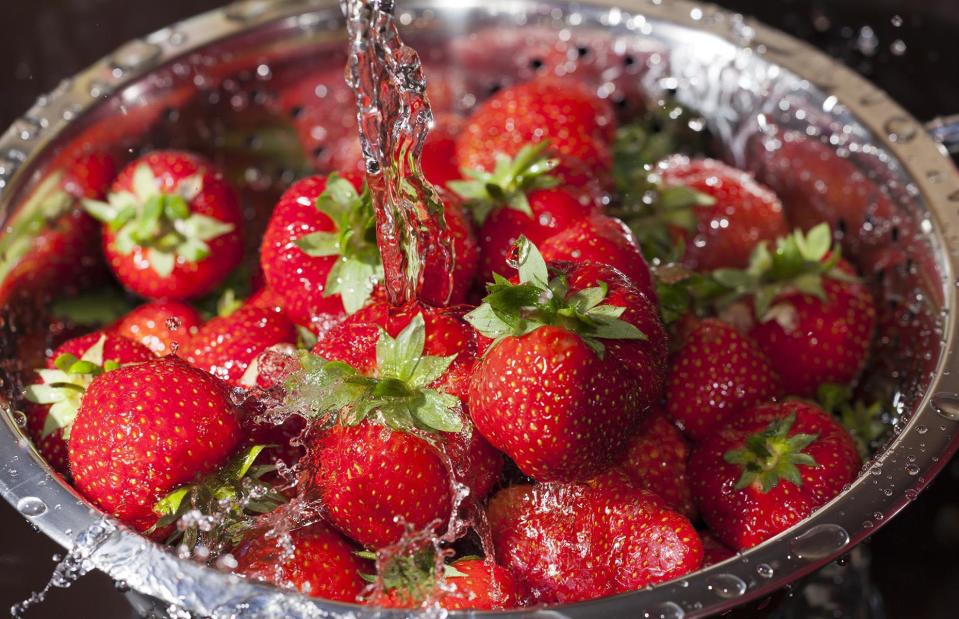
Thomas Klee/Shutterstock
Delicate soft fruit like raspberries and strawberries might seem fiddly to wash, but they can also carry harmful bacteria and viruses picked up through contaminated water or during picking and processing. Give them a rinse under cold water just to be sure. Top tip: It's best to wash berries just before you're ready to eat them as the moisture can decrease their shelf life.
Not washing melon rind
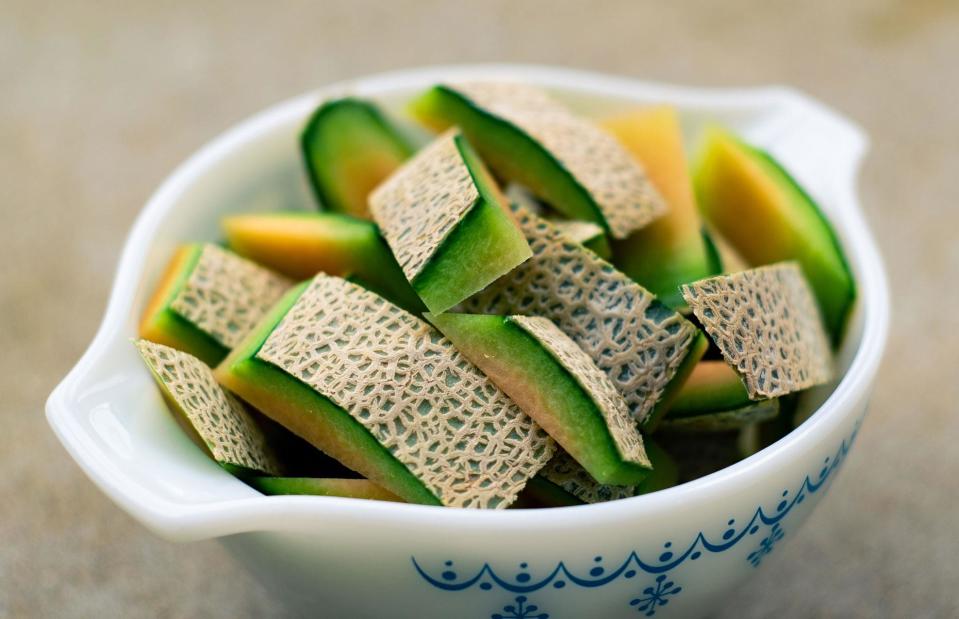
Mitchell Griest/Unsplash
Fruits grown on the ground like cantaloupe, watermelon and honeydew melon have a high food poisoning risk because listeria bacteria can grow on the rough rind and spread to the flesh. Wash your melons thoroughly and remove the flesh from the peel to be extra safe.
Cooking with open wounds on your hands
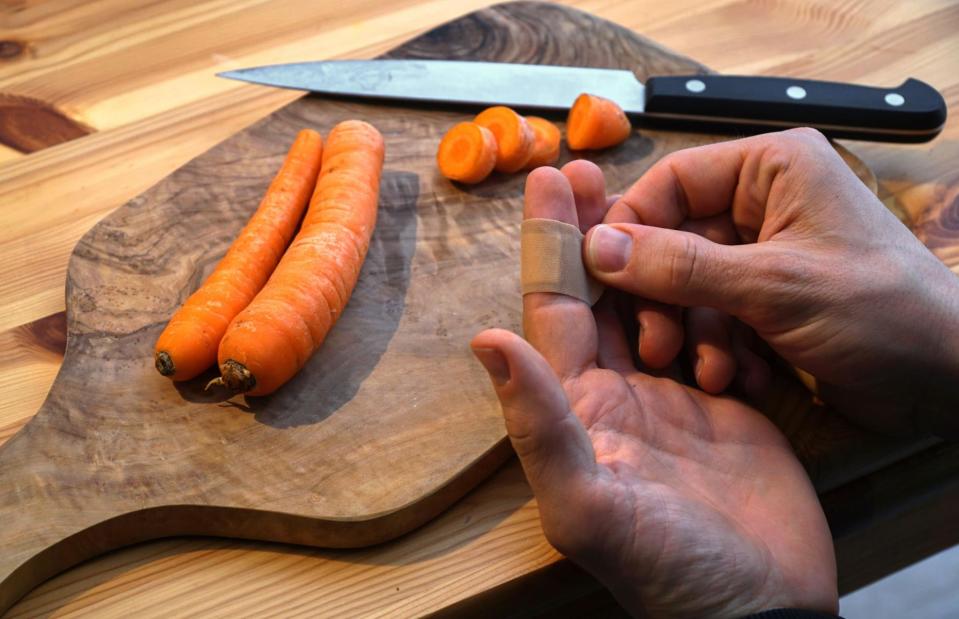
Likee68/Shutterstock
Even a tiny scratch is an open wound that can carry harmful bacteria and is a key source of food poisoning. Wrap any cuts, no matter how small, in an adhesive bandage. In professional kitchens, the bandages are always bright blue so that they're easy to see.
Smelling food to see if it’s off
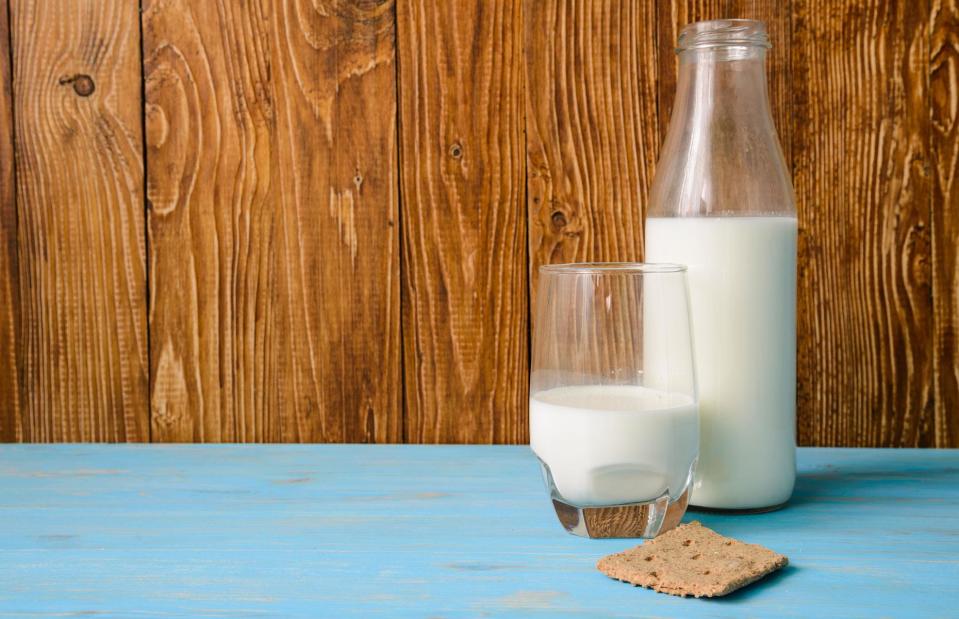
Vera Petrunina/Shutterstock
We’ve all sniffed milk to check if it’s gone off, but not all bacteria produce bad smells. While your sense of smell is a good indicator some of the time, don’t trust it as the only way to detect food poisoning. Check use-by dates and don’t take the risk.
Putting warm food in the fridge
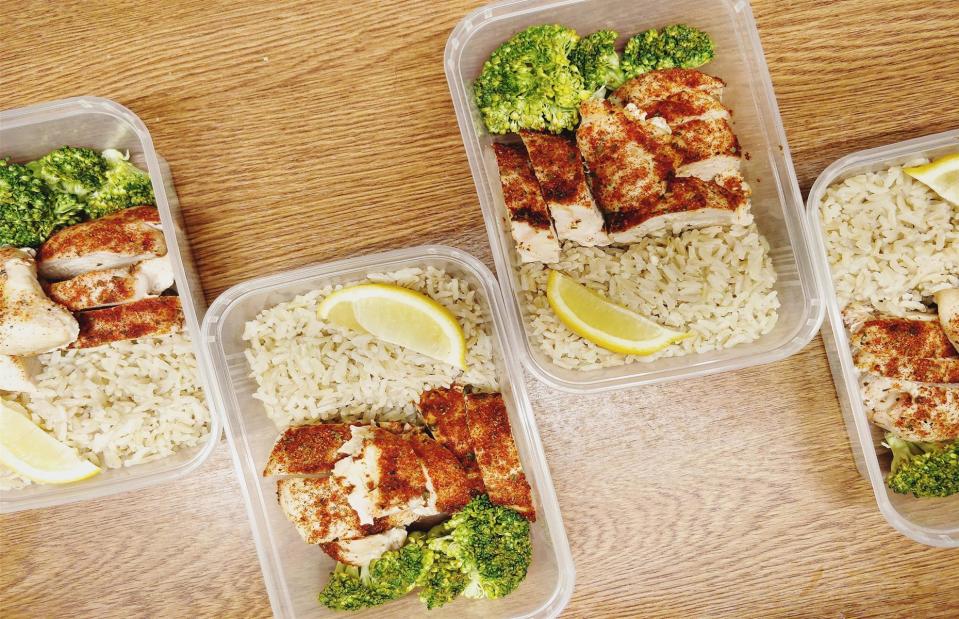
BennMcIntyrePhotography/Shutterstock
Putting warm food in the fridge raises the internal temperature and could put all the food in there at risk of bacteria growth. However, as previously mentioned, it's also important to chill dishes quickly after they've been cooked. To cool food down more quickly, so it's at a suitable temperature to store in the fridge, divide it into smaller portions, spread food like rice on a tray or cover saucepans and move to colder areas. The coldest part of a fridge should be below 5ºC (41ºF).
Re-freezing melted ice cream

Foxys Forest Manufacture/Shutterstock
Don't re-freeze ice cream once it’s melted. When it's left out at room temperature for an extended period of time, harmful bacteria like listeria can develop.
Keeping leftovers warm
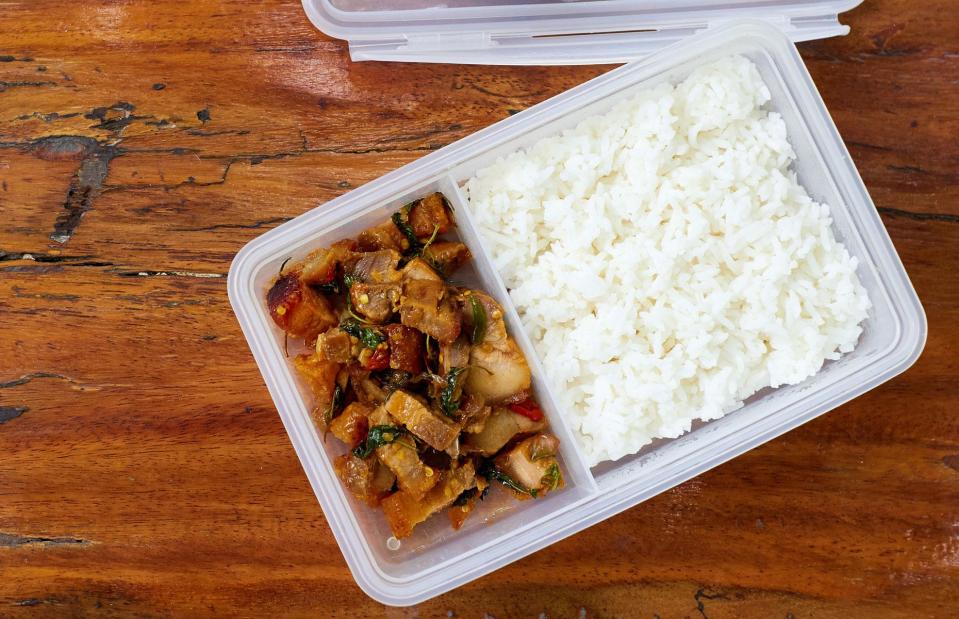
N192/Shutterstock
Cool leftovers as quickly as possible, ideally within two hours. If leftovers take too long to cool or they’re left out, there's an increased risk of bacteria reproducing. Store in the fridge or freezer and always eat leftovers within two days.
Keeping raw meat or fish for too long
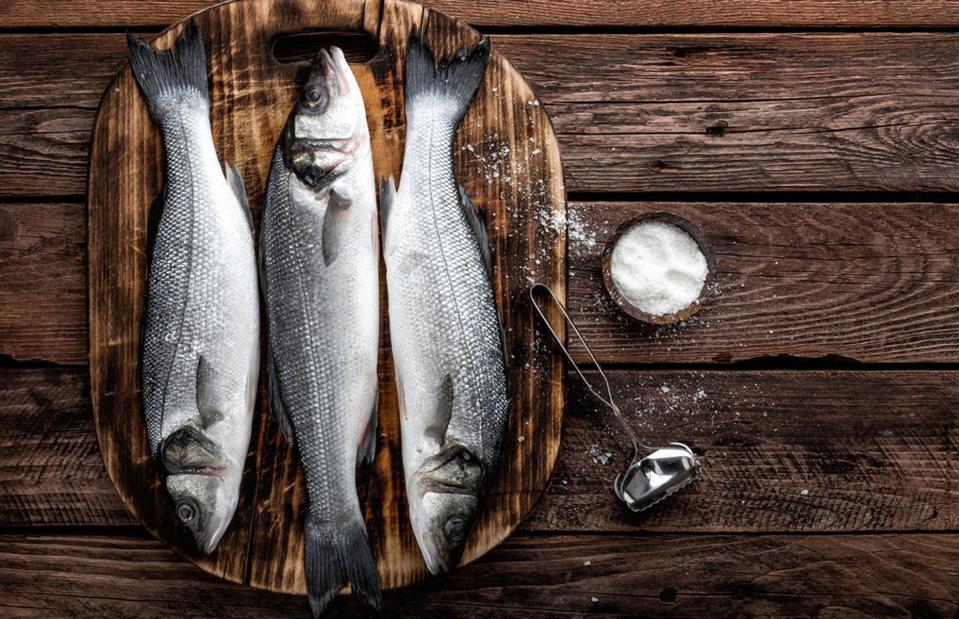
Sunny Forest/Shutterstock
Don’t be tempted to keep raw meat and fish for too long. Ideally, cook or freeze fresh poultry, fish and meat within two days of purchase. If you open and only use some of the food, store correctly and check the label for when to use it by after opening.
Eating a dodgy buffet
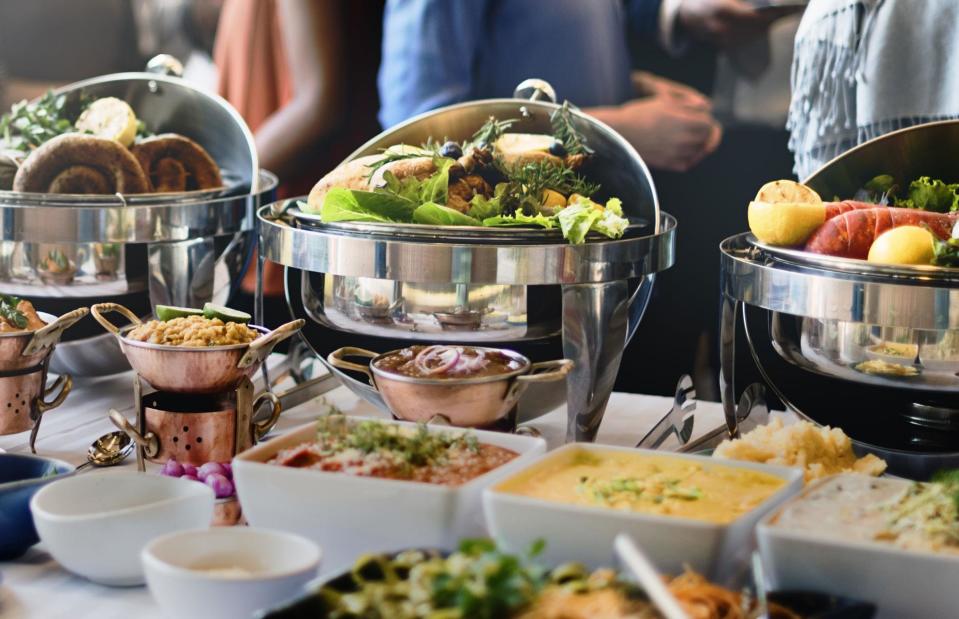
Rawpixel.com/Shutterstock
Steer clear of those egg sandwiches that have been out on the buffet table all afternoon. Keeping risky foods like eggs, rice, meat and fish at the wrong temperature is a sure-fire way to spread food poisoning. Ideally, dishes shouldn't be left out for more than two hours at room temperature, or no more than one hour if it’s a hot day.
Putting raw meat on the top shelf of the fridge
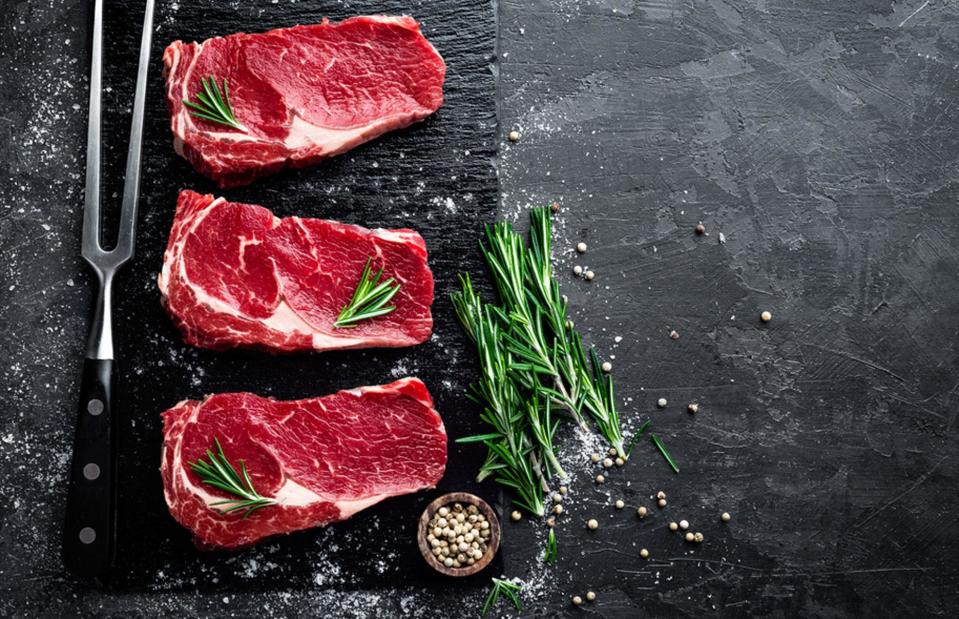
Sea Wave/Shutterstock
Raw meat should be kept on the bottom shelf (the coldest area in the fridge), in a clean, sealed container, so the juices don’t cross contaminate other food in the fridge. Keep it separate from any other produce.
Eating undercooked meat
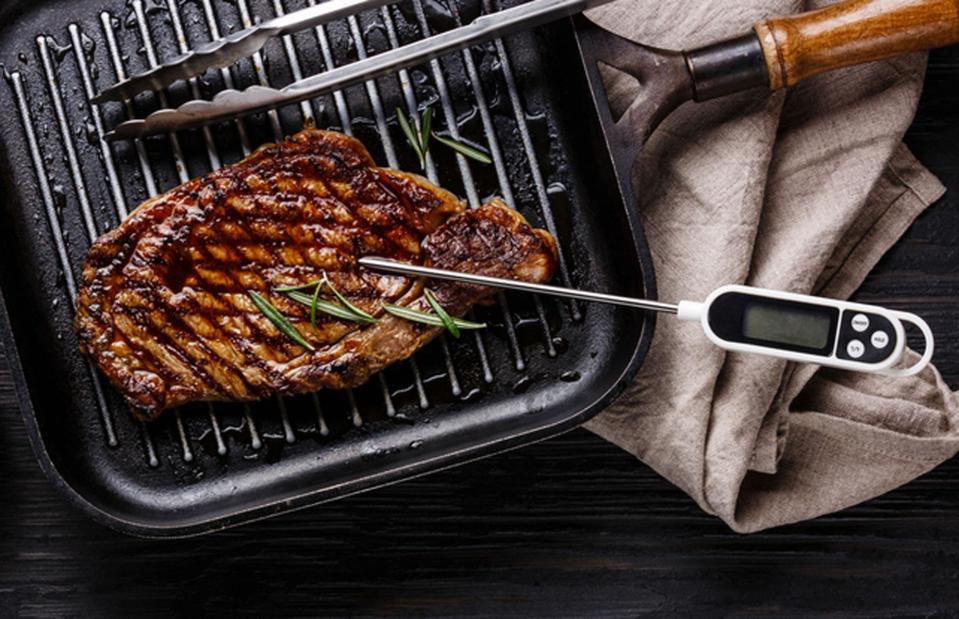
Lisovskaya Natalia/Shutterstock
Invest in a digital food thermometer and you’ll never worry about under (or over) cooking meat again. Beef, pork, lamb and veal should have a minimum internal temperature of 63ºC (145°F) and chicken should be cooked to an internal temperature of 74°C (165°F).
Washing raw meat
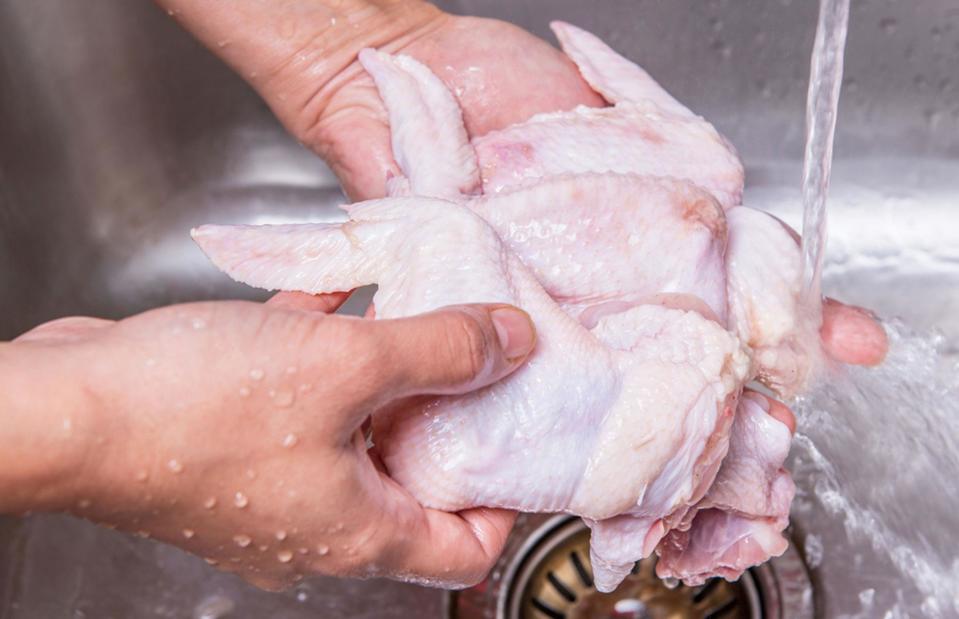
Mahathir Mohd Yasin/Shutterstock
Washing raw meat, like chicken or turkey, is an old-fashioned food safety myth. Rinsing meat will splash bacteria all over your kitchen, sink, cloths and utensils. Instead, follow basic food hygiene while preparing chicken and cook it thoroughly to avoid contamination.
Using the same tongs for raw and cooked meat on the barbecue
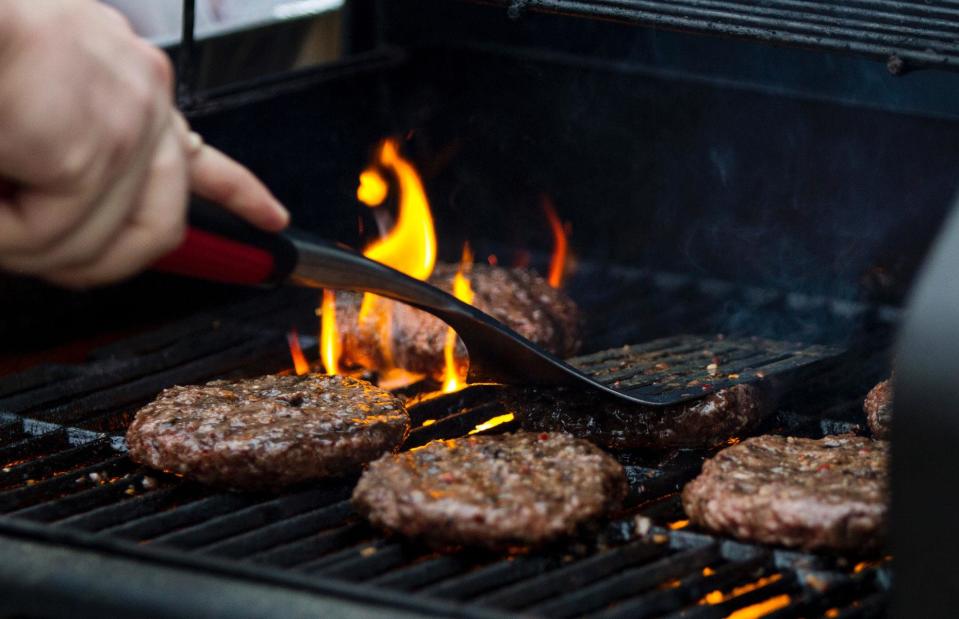
Zac Cain/Unsplash
When you’re grilling sausage and burgers on the barbecue, it’s easier to use one set of tongs – but you’re at risk of spreading harmful bacteria from raw to cooked meats and vegetables. Get two different coloured tongs: one for raw and one for cooked food.
Overfilling your fridge
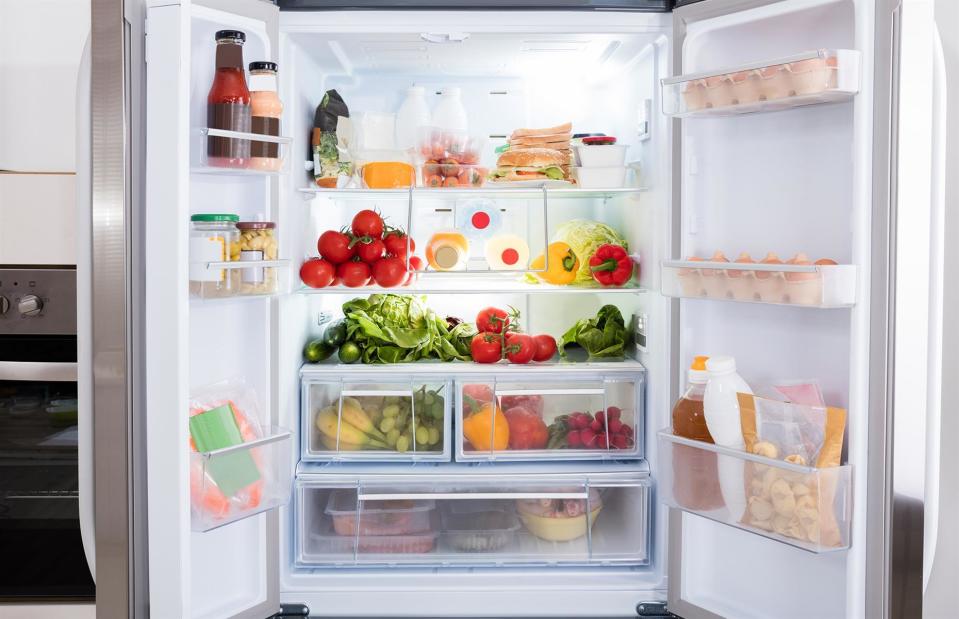
Andrey_Popov/Shutterstock
Leave space in your fridge to allow air to circulate. Overfilling it with food can increase the temperature and the risk of bacteria reproduction. Bacteria grow most rapidly in the 8-60°C (46-140°F) ‘danger zone’, so you want to avoid keeping food in this temperature range as much as possible.
Defrosting food on the counter
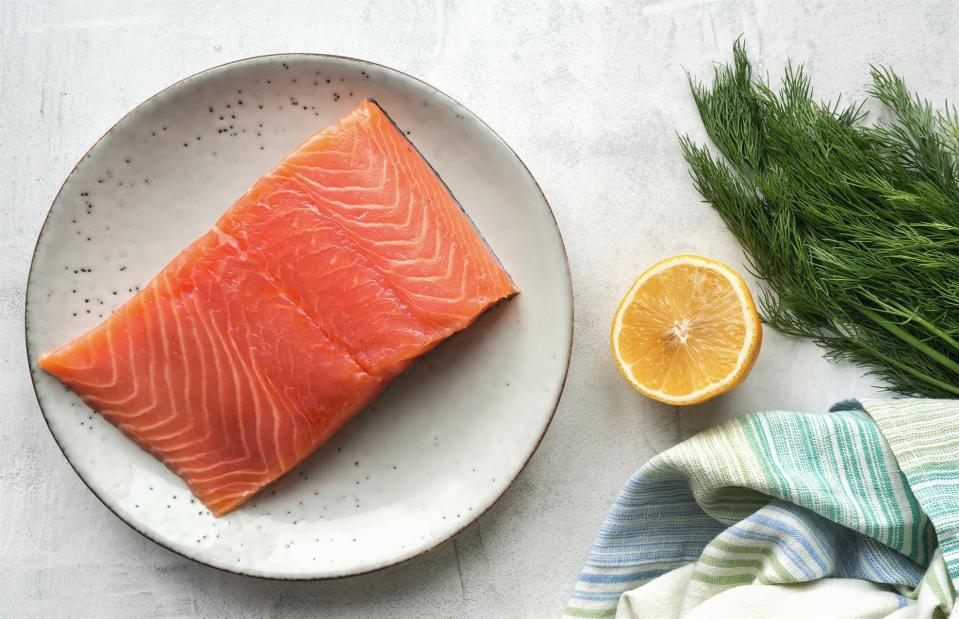
MasterQ/Shutterstock
Defrost frozen food as quickly as possible to avoid food poisoning. That means not leaving it out on the kitchen table all day. Defrosting food in the fridge overnight is the best option, as it keeps food out of that bacteria ‘danger zone’. Defrost meat on a plate so juices don't drip onto other foods.
Stockpiling tinned food and keeping it in the fridge
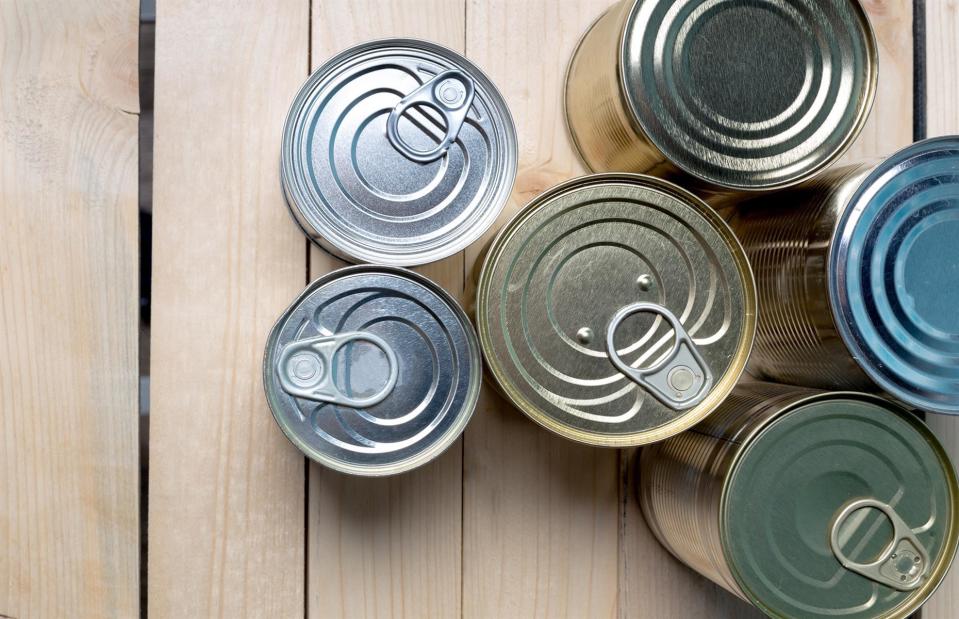
FabrikaSimf/Shutterstock
It's useful to have a tin of tomatoes or beans in the cupboard but canned food doesn't last forever – stick to the expiration date. Also, if you only use half a tin, avoid storing the open can in the fridge as food can develop a metallic taste. Instead, decant it into another container.


